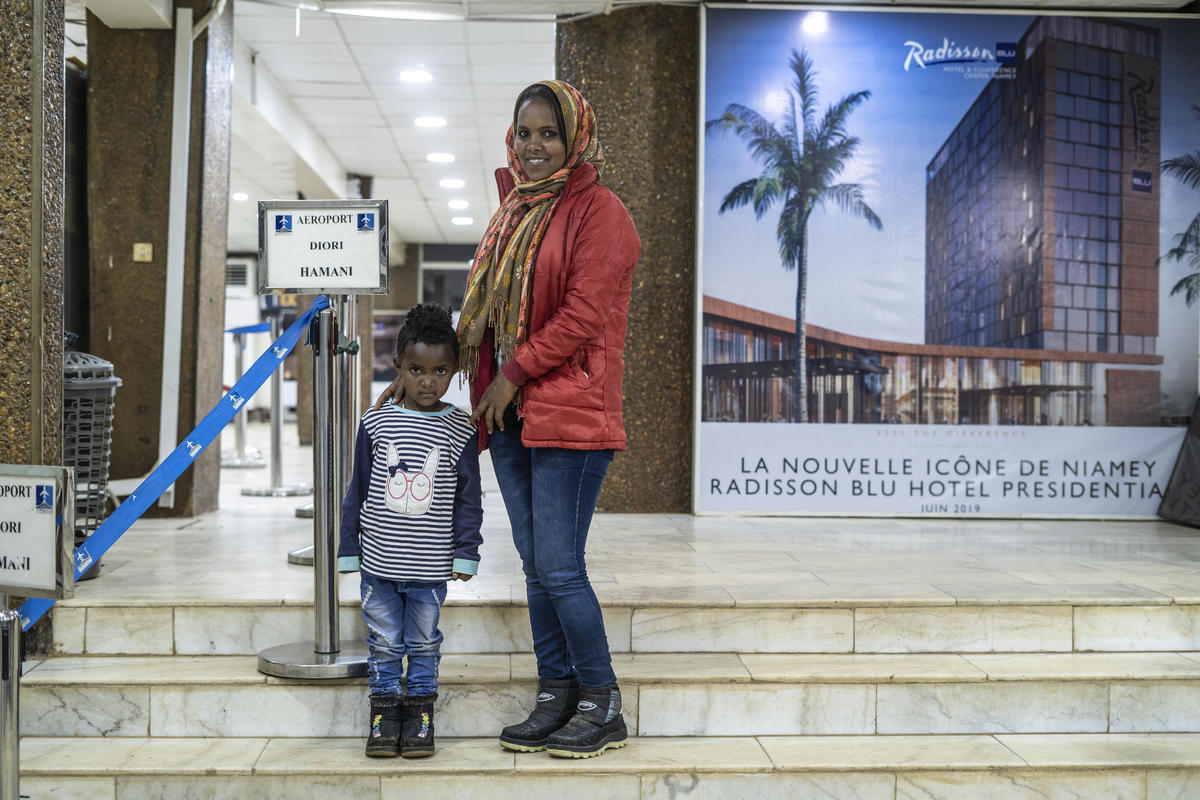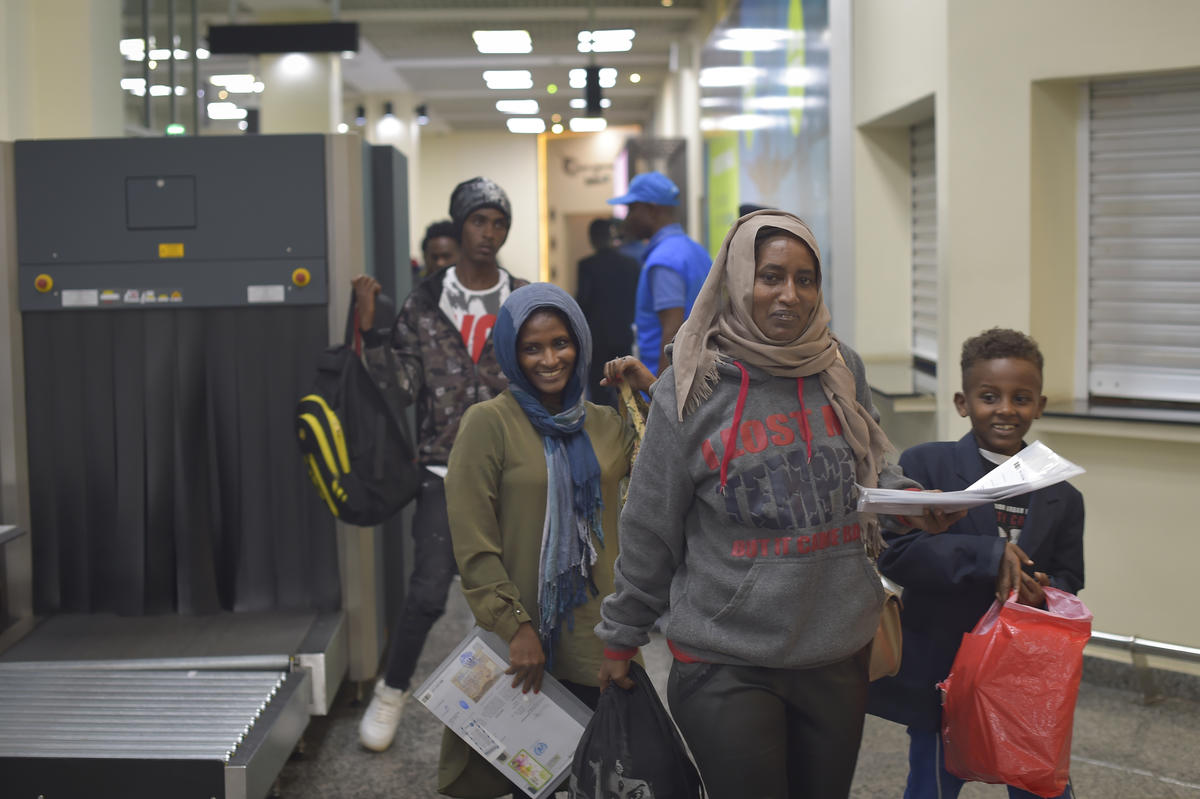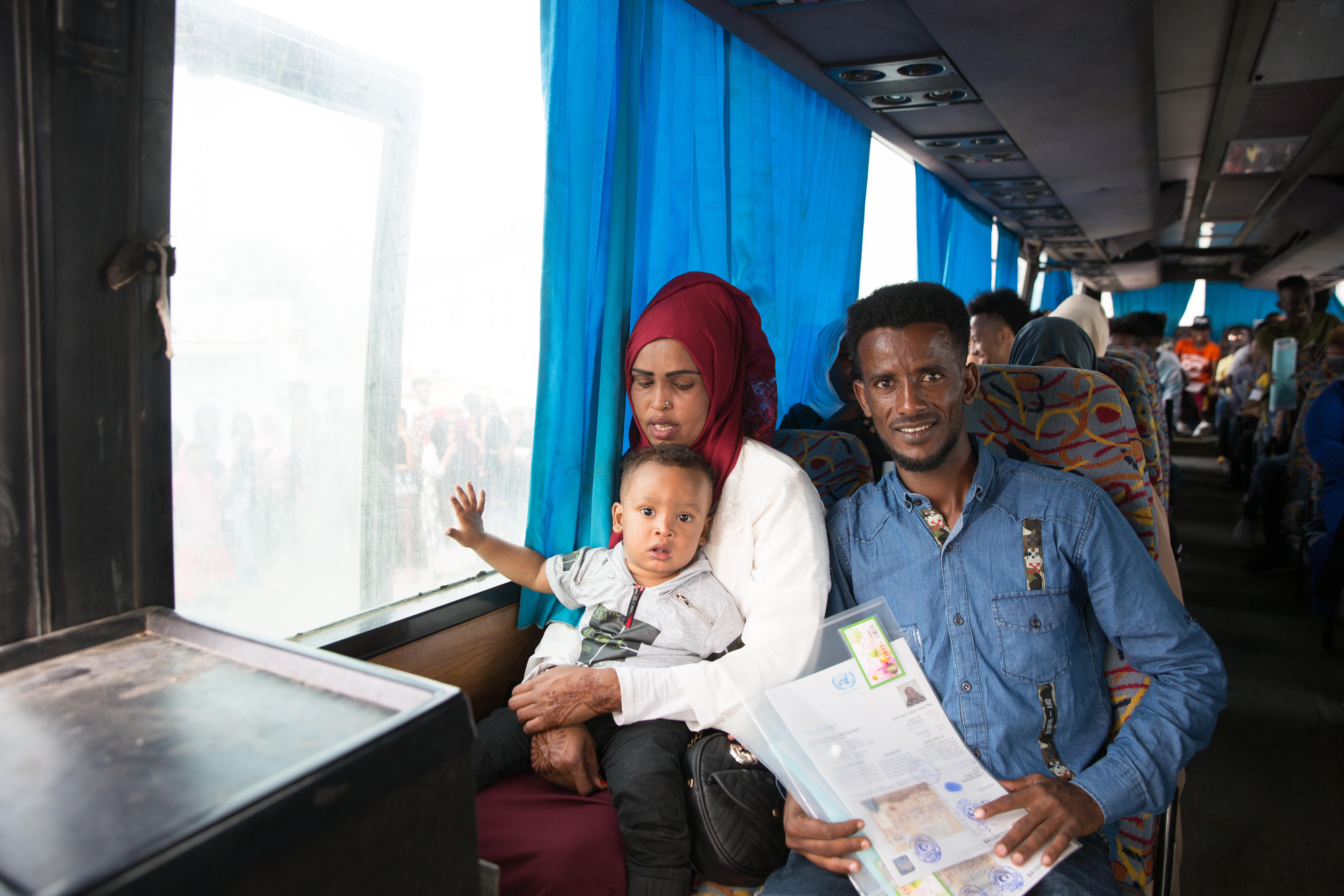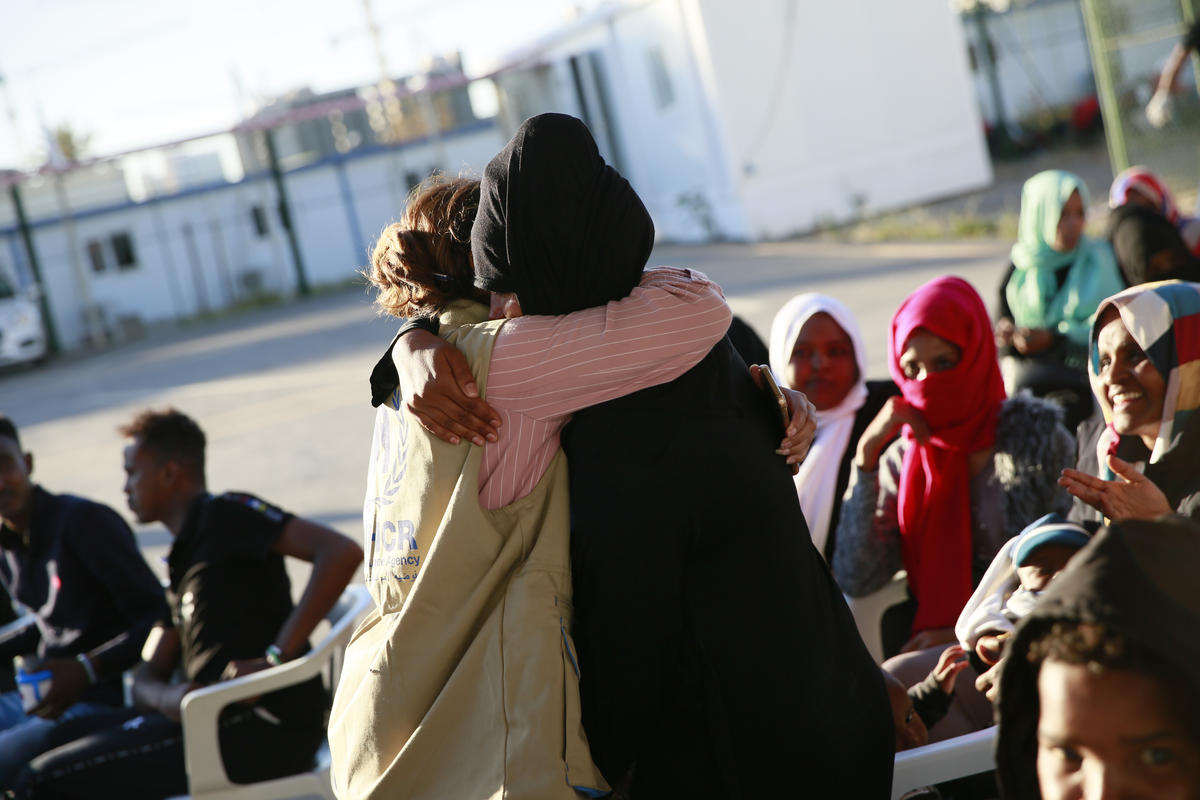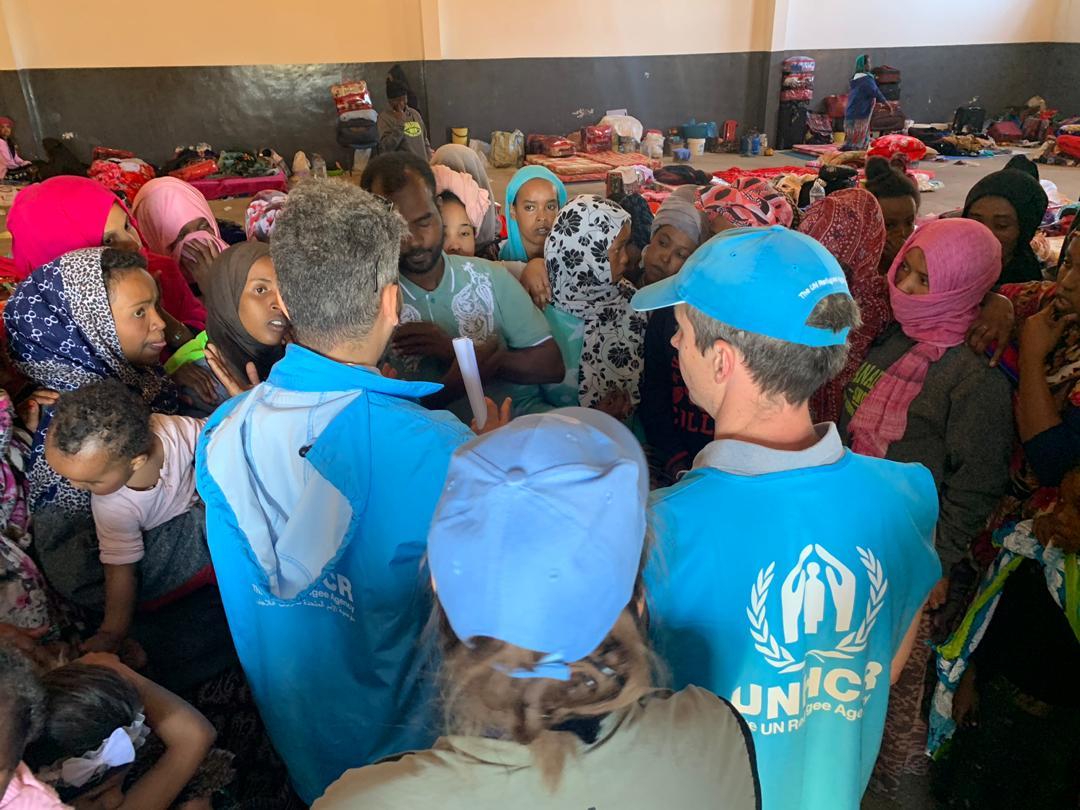UNHCR concerned at detention of asylum-seekers, releases new guidelines
UNHCR concerned at detention of asylum-seekers, releases new guidelines
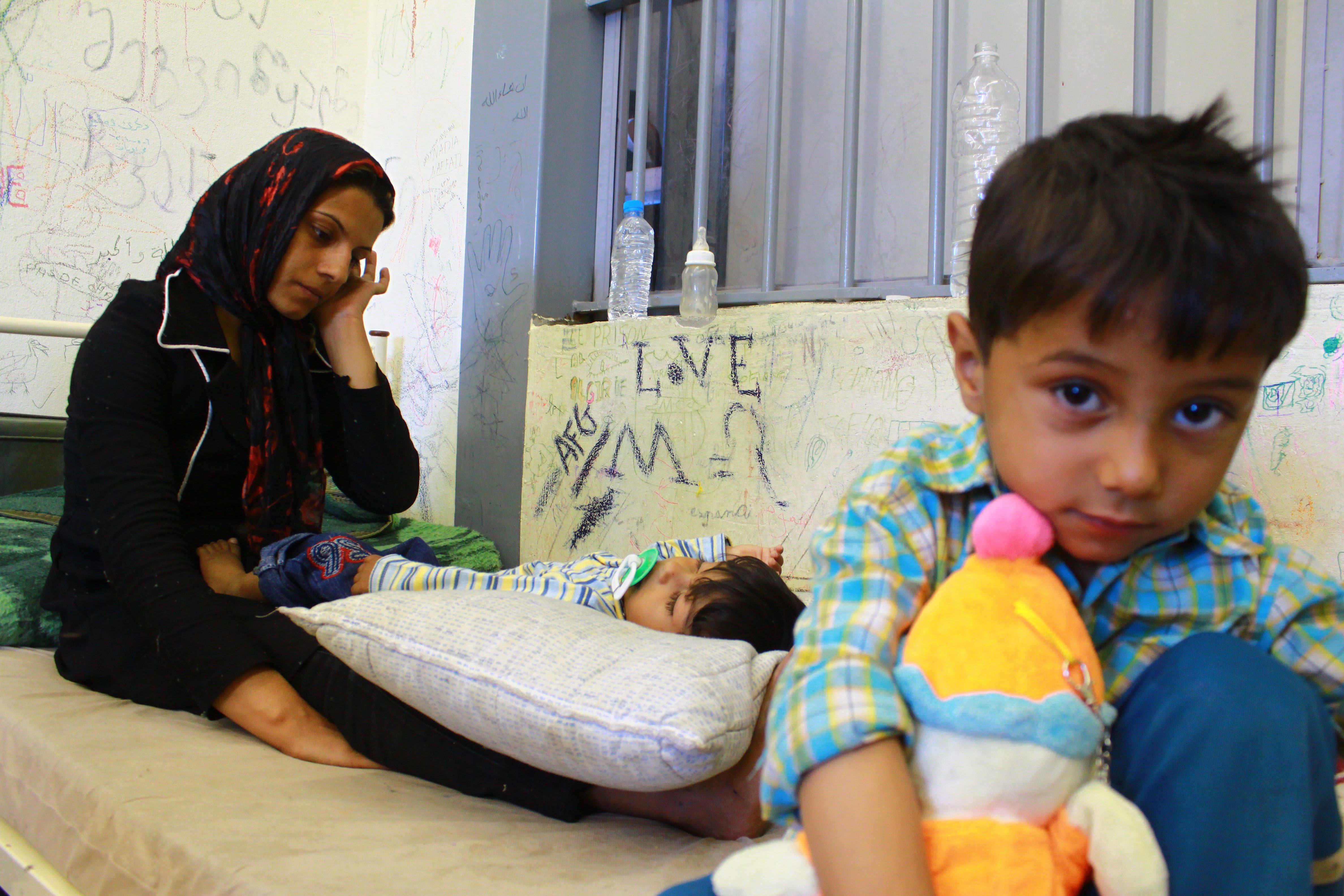
GENEVA, September 21 (UNHCR) - The UN refugee agency on Friday issued new guidelines on the detention of asylum-seekers and said UNHCR was concerned at its growing use in a number of countries.
"The guidelines represent UNHCR policy and are intended as advice for governments and other bodies making decisions on detaining people," spokesman Adrian Edwards told journalists in Geneva on Friday.
As a principle, UNHCR opposes detention of people seeking international protection. The new guidelines make clear that seeking asylum is not a criminal act, and that indefinite and mandatory forms of detention are prohibited under international law, Edwards explained.
"We are disappointed that many countries continue to hold asylum-seekers in detention, sometimes for long periods and in poor conditions, including in some cases in prisons together with common criminals," he said.
UNHCR is particularly concerned that detention is in growing use in a number of countries. Edwards said that the refugee agency's research "shows that irregular migration is not deterred even by stringent detention practises, and that practical alternatives to detention do exist. In addition, there are well-known negative and at times serious physical and psychological consequences for asylum-seekers in detention."
The new guidelines, reflecting the current state of the international law, supersede the last ones issued by UNHCR in 1999. They recognize the phenomenon of irregular migration as well as mixed movements of refugees and migrants that can strain asylum systems in many countries.
This is a particular challenge for governments, and some of them respond through detention policies and practices, extending it - at times - to asylum-seekers. "The fundamental right to liberty and the prohibition of arbitrary detention applies to all people regardless of their immigration or other status," Edwards stressed.
The right to seek asylum entails open and humane reception arrangements for asylum-seekers. Recent research on alternatives to detention, commissioned by UNHCR, shows that with community-based supervision arrangements, more than 90 per cent of asylum-seekers comply with conditions of release from detention.
"UNHCR calls on states to make better use of alternatives to detention. These can include various forms of reporting requirements to community and supervision schemes or accommodation in designated reception centres, but with guaranteed freedom of movement," the spokesman said.
Such solutions are important features of immigration and asylum regimes. Alternatives to detention are also far more cost-effective than detention. UNHCR will continue to carry out research to identify and promote good practices related to alternatives to detention of asylum-seekers and remains fully engaged on this issue at international and national levels.
"We stress our view that unaccompanied children should not be detained," Edwards said. "UNHCR calls on governments to also pay special attention to vulnerable asylum-seekers such as victims of torture and trauma, older persons or persons with disabilities," he added.
The UN refugee agency believes detention should be a measure of last resort, prescribed by national laws and implemented only where necessary and proportionate to a legitimate purpose - in conformity with international standards.
"In line with the growth in international, regional and national monitoring and inspection bodies, we stress that detention should be subject to independent monitoring and inspection, including by UNHCR," Edwards said.


